 Skilled Nursing Facilities have until November 28, 2019 to adopt and implement a compliance program that meets the elements set out by the Center for Medicare and Medicaid Services (CMS). Beginning on that date, state survey agencies will start assessing nursing homes’ compliance programs as an additional condition of participation in Medicare and Medicaid. Issued in 2016 as part of CMS’s revised Part 483 of Title 42 (“Requirements for States and Long Term Care Facilities”), the CMS compliance program elements are functionally identical to those from the Office of Inspector General for Health and Human Services (OIG).[1] Already the standard for effective compliance programs, the OIG elements are used to measure an organization’s culpability when federal fraud and abuse laws are violated. Specifically, the OIG considers “the existence of an effective compliance program that pre-dated any governmental investigation when addressing the appropriateness of administrative sanctions.”
Skilled Nursing Facilities have until November 28, 2019 to adopt and implement a compliance program that meets the elements set out by the Center for Medicare and Medicaid Services (CMS). Beginning on that date, state survey agencies will start assessing nursing homes’ compliance programs as an additional condition of participation in Medicare and Medicaid. Issued in 2016 as part of CMS’s revised Part 483 of Title 42 (“Requirements for States and Long Term Care Facilities”), the CMS compliance program elements are functionally identical to those from the Office of Inspector General for Health and Human Services (OIG).[1] Already the standard for effective compliance programs, the OIG elements are used to measure an organization’s culpability when federal fraud and abuse laws are violated. Specifically, the OIG considers “the existence of an effective compliance program that pre-dated any governmental investigation when addressing the appropriateness of administrative sanctions.”
Minimum Compliance Program Elements for All Facilities
- Implementing written policies, procedures, and standards of conduct;
- Designating a compliance officer and compliance committee;
- Conducting effective training and education;
- Developing effective lines of communication;
- Enforcing standards through well publicized disciplinary guidelines;
- Conducting internal monitoring and auditing; and
- Responding promptly to detected offenses and developing corrective action.[2]
Meant to help nursing homes develop compliance programs that promote the delivery of quality care and encourage the prevention and detection of fraud and abuse, the CMS regulation and OIG guidance include these “minimum” elements of an effective compliance program. However, these elements should only be considered a starting point. The true effectiveness of a compliance program will be measured by how thoroughly each element is addressed, and whether a compliance program promotes a culture of compliance at all levels of an organization. Additionally, operating organizations with five or more facilities must also address the following requirements.
Additional Program Elements for Operating Organizations with Five or More Facilities
- Conducting mandatory annual training on their compliance program;
- Designating an organizational compliance officer who reports directly to the organization’s governing body and is not subordinate to the general counsel, CFO, or COO; and
- Designating compliance liaisons at each facility.
Annual Compliance Program Review for All Facilities
Under the new CMS mandate, all organizations must also conduct an annual review of their compliance program and incorporate any changes from the prior year. Organizations should complete these reviews as soon as possible—state survey agencies can begin issuing deficiencies related to compliance programs under survey F-tag F895 on the November 28 deadline.[3]
Conclusion
All nursing home organizations should commit to developing, implementing, and continually assessing their organization-wide compliance program. Effective compliance programs will not only be required beginning November 28th, a truly effective compliance program can be an essential tool for reducing an organization’s exposure to the financial and legal risks created by the ever-increasing enforcement efforts of the federal government.
Stotler Hayes Group is offering a limited number of annual, flat-fee engagements that will include a comprehensive review of your organization’s compliance and ethics program and development of a web-based training program tailored to your organization’s program. If you are interested in this offering or would like help meeting the CMS compliance program requirements, please contact us.
[1] 42 C.F.R § 483 (2016). See https://www.govinfo.gov/content/pkg/CFR-2011-title42-vol5/pdf/CFR-2011-title42-vol5-part483.pdf; see also OIG Compliance Program Guidance for Nursing Facilities, https://oig.hhs.gov/authorities /docs /cpgnf.pdf.
[2] 42 C.F.R § 483.85; see also https://oig.hhs.gov/authorities/docs/cpgnf.pdf.
[3] CMS State Operations Manual; F895, § 483.85: Compliance and Ethics Program. See https://www.cms.gov/ Regulations-and-Guidance/Guidance/Manuals/downloads/som107ap_pp_guidelines_ltcf.pdf
